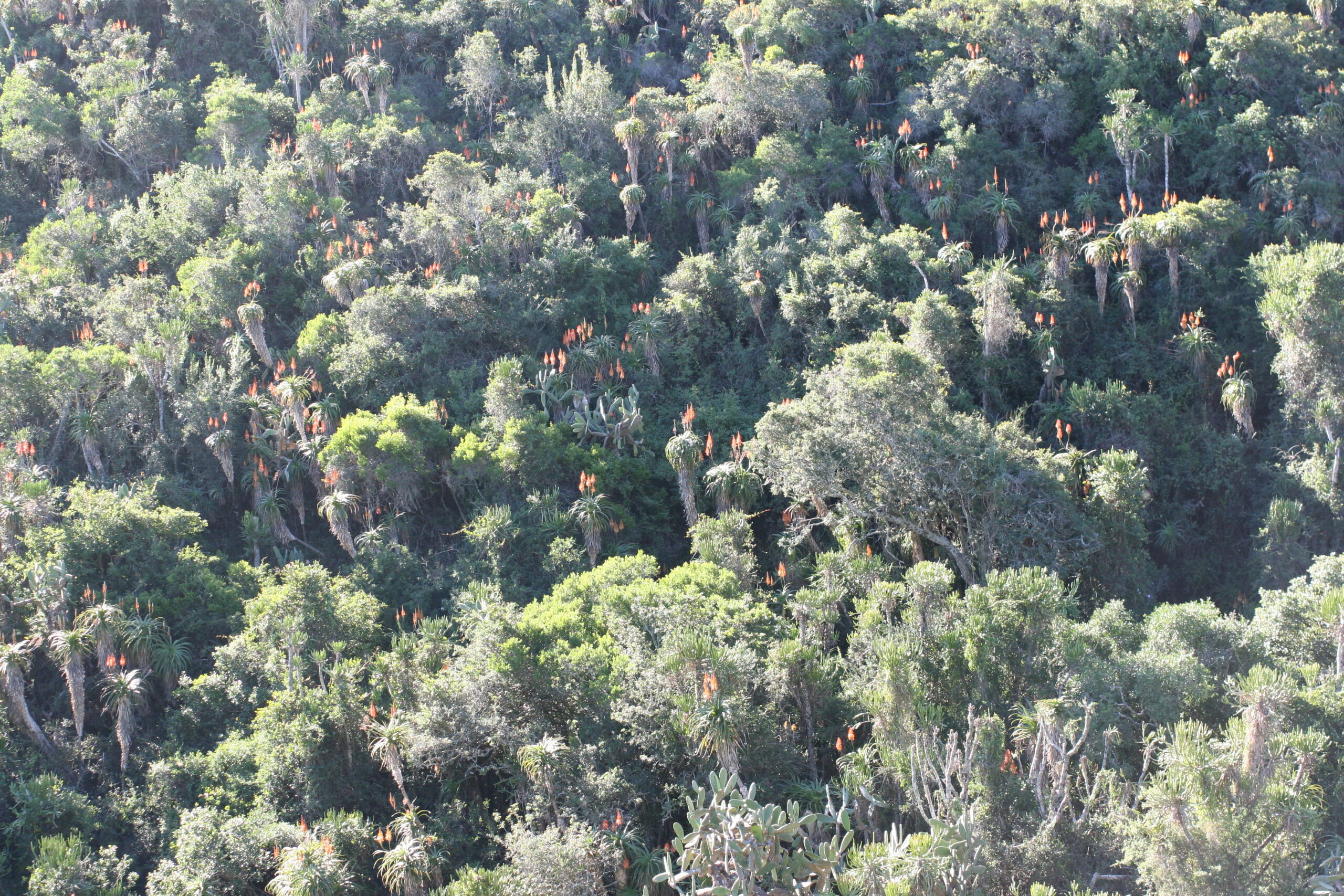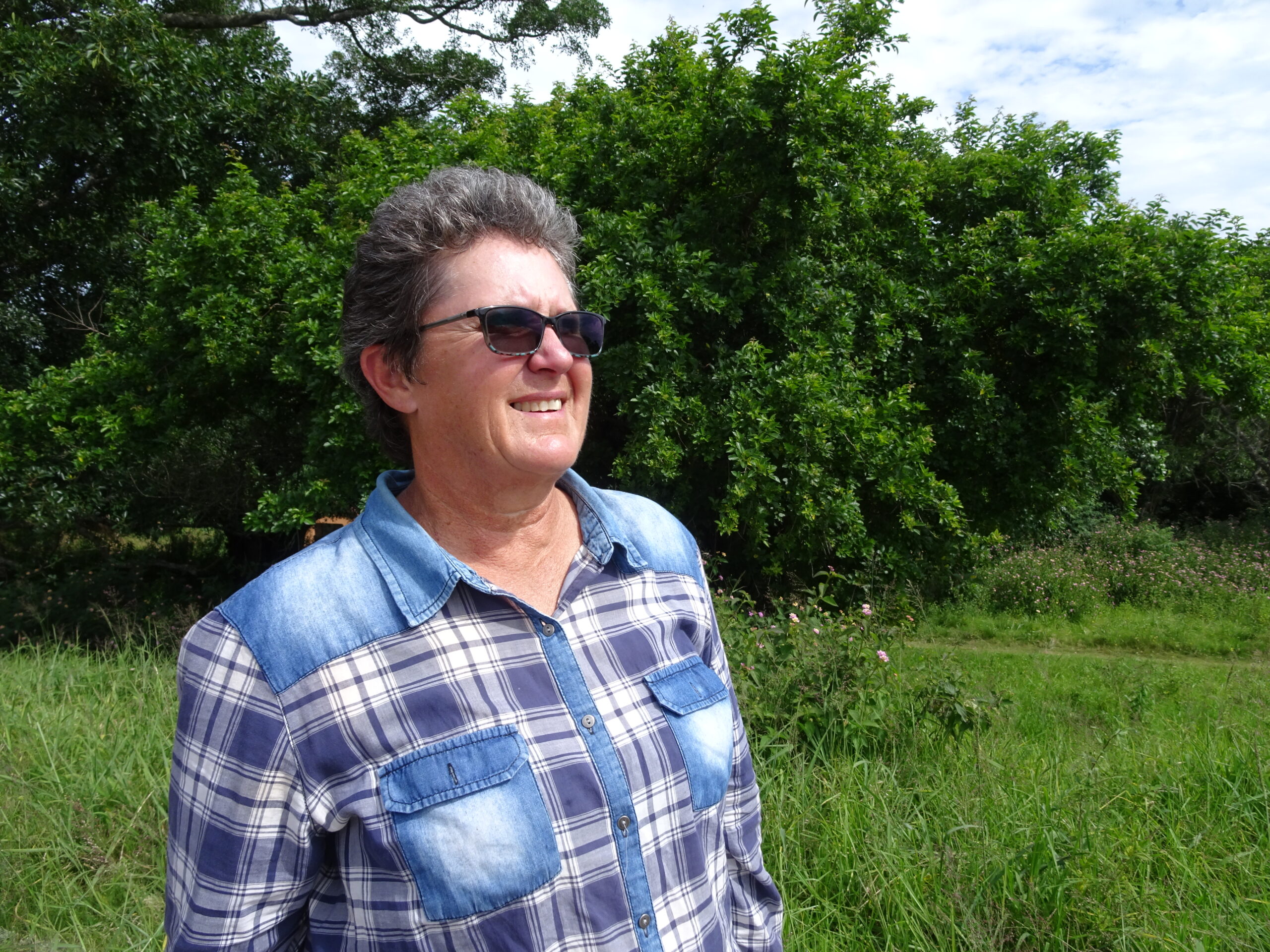By MARION WHITEHEAD
Spending years learning to read the bush and knowing when to move her Nguni oxen to the next camp has paid handsome dividends for Bathurst farmer Leonie Yendall of Nurney farm in Bathurst.
“Today we rarely need to supplement feed for our Nguni oxen. We can leave them in a 100 hectare Thicket camp for up to 120 days. I prefer to move them every six weeks and rest the camp for 220 days, because then the bush recovers more rapidly. We graze the Thicket camps for a shorter period in summer and, if conditions are good, for a longer period in winter” said Yendall.
Speaking to a packed meeting of Friends of Waters Meeting Nature Reserve at Pike’s Post at the Bathurst Agricultural Museum on 4 February about her farming journey in Thicket, Yendall shared some tips and passed around samples of ‘green gold’ – fresh cow dung.
“It [cow dung]tells me when the nutrient availability in the bush has dropped and it’s time to move the cattle. Fresh dung that sticks to your shoe like putty indicates nutrient levels have dropped. Management must be able to read dung and take appropriate action” she said.
The dense Subtropical Thicket (also known as Albany Thicket) on the farm intrigued her. “I started learning by immersing myself in it. For instance, I saw that spekboom is a shy lady; she keeps her dress to the ground and creates her own microclimate there, then invites other creatures to share
it, like the mycorhizza that connects plant roots to the web of life in the soil” said Yendall.
Initially, the family’s cattle breed was not suitable for conditions on the farm. “We put them in a 100ha camp of Valley Thicket and within three hours they were back at the gate, complaining there was nothing to eat. So we switched to Ngunis. When we put them in the same camp, three months later they were still happy. Ngunis are more buck than cow!” she exclaimed.
She had to quell her first impulse to bulldoze the bush and plant grass. Instead she started researching Thicket and was fortunate enough to have Prof Winston Trollip of Fort Hare University and retired Prof Aucamp as mentors.
The Ngunis browse to a height of 1.2 metres and Yendall calculated the carrying capacity of their bush as 1200kg/ha/year. If cattle need 18kg feed a day, that gave a ratio of 15ha per large stock unit for oxen in Valley Thicket, compared to 1ha per large stock unit on pasture for breeding cows.
The Yendall’s input costs for Ngunis are much lower than with other breeds. They are hardy and breeding stock only need dipping every six to eight weeks, compared to other breeds that must be dipped/sprayed every week. Four times a year is sufficient for the oxen. Yendall says they seldom need the services of a vet. They sell their oxen as ‘grass fed beef’ when they reach 450kg at the age of about four years.
“There’s a fine line between profitability and sustainability. To meet the sweet spot, you need to explore different methods of harvesting what’s on your land, for instance, turning grass or Thicket into beef and hides.”
Overgrazing leads to degraded Thicket, which supports far fewer animals. On the other hand, if you don’t graze the Thicket, it becomes impenetrable and nothing grows underneath it. Correct levels of browsing allow enough light for grasses like white buffalo grass (Panicum maximum) to grow naturally and prolifically. The cattle’s hoof action spreads the seeds and their urine and dung stimulate overall plant growth.
“Thicket is difficult to fix once it’s degraded. It’s very unforgiving and doesn’t like being abused” says Yendall.
“We’ve changed how we look at our Thicket and now see it as a part of our farm’s heritage. It often grows in steep, readily erodible land and it holds the soil together, even on shale banks which are easily disturbed. So it’s in our interest to look after the Thicket that we so often refer to as ‘just bush’” she added.
“We’ve got to do things differently, but also make sure the environment is not damaged in the process. Because like the kiepersol, the Thicket can’t ‘keep us all’ if we keep messing with it,” Yendall said.
For more information about the different types of Thicket, see www.rrrg.co.za

(Photo: Rhodes Restoration Research Group)



